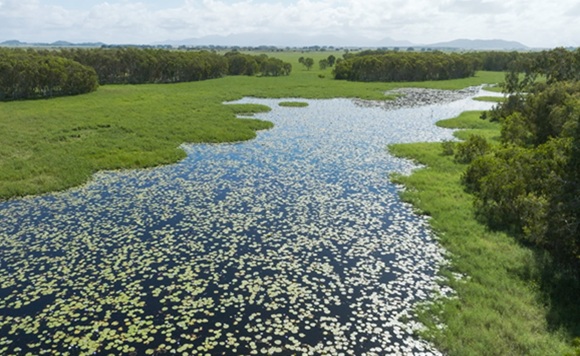
Mungalla: Healing the Herbert
Owners of Mungalla in the Herbert catchment are helping bring wetlands back to life
Healthy waterways underpin our lifestyles and livelihoods. When waterways thrive, so do we.
The Reef Guardian School Program turns 20 this year and there’s a lot to celebrate in this region, thanks to the work of 100 Wet Tropics schools, 50,000 students and more than 2000 teachers.
Fourteen-year-old Charlie Hard is looking at a coral trout swimming beside plating corals. It’s the 1000th photo he’s opened on his laptop to identify coral for the Great Reef Census, a massive citizen science project involving analysis of almost 80,000 reef survey images.
“It’s helping scientists work out what all the reefs are like and what dangers they’re facing,’’ he says. “It’s pretty cool to be able to help protect the reef by sitting for an hour or so at home and identifying branching and plating corals.”
Charlie is one of 300 Newman Catholic College students who’ve been part of the Reef Guardian School Program over the past two years – an initiative that’s led to project work with marine biologists on Green Island and annual community days on Palm Cove jetty where the students promote sustainable fishing habits.
If he had one message for others, he says it’d be this: “It’s important to have things like green zones (no-take areas). Some people want to make the whole reef ‘green’. That wouldn’t work for the fishers. They need areas. But we also need to get the fish populations back up, to give fish somewhere to reproduce.”
Teacher Matt Radburnd says the school’s Year 7 and 8s love the chance to have marine experiences.
“Next we are hoping to be involved in rehabilitation of an area affected by cyclone, coral bleaching or crown-of-thorns starfish. We’d also like to link in with Tropwater at James Cook University Cairns to help with seagrass projects.”
Across the Wet Tropics region, primary and high school students have been involved in beach clean-ups, habitat restoration and citizen science initiatives including with the Authority’s Eye of the Reef app, with Tangaroa Blue and Mangrove Watch. There have also been projects to reduce energy consumption and waste and to increase recycling.
These reef enthusiasts are among 350,000 students and 10,000 teachers in Queensland who have now been part of the Great Barrier Reef Marine Park Authority’s Reef Guardian School Program.
“The Reef Guardian initiatives are a great example of what we can achieve, and the impact we can have, when we think global and act local,” Reef Authority Chief Executive Officer Josh Thomas says.

Owners of Mungalla in the Herbert catchment are helping bring wetlands back to life
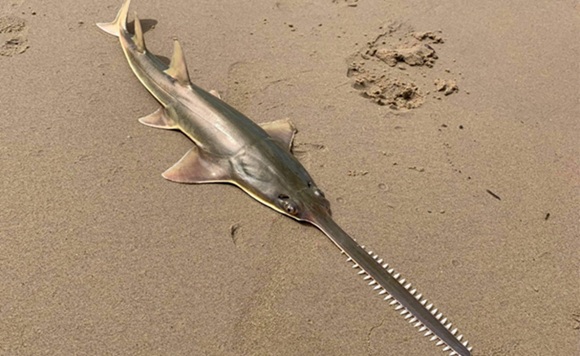
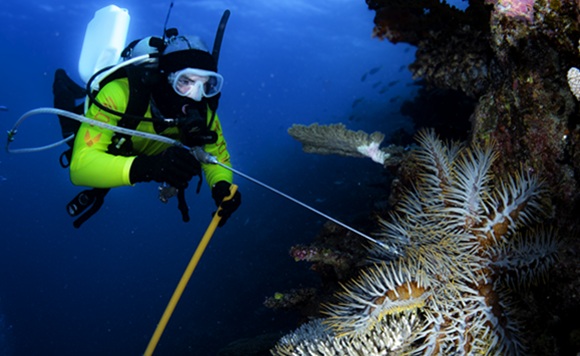
Marine biologist Rickard Abom shares his experiences of the Great Barrier Reef

Martine joined the Wet Tropics Waterways team as a Science Technical Officer in early 2024. She is an environmental scientist and ecologist and has worked on water quality and aquatic ecology projects as a consultant and in private industry for over 20 years. She is using her experience in statistical programming and database development to develop new systems for the Report Card.
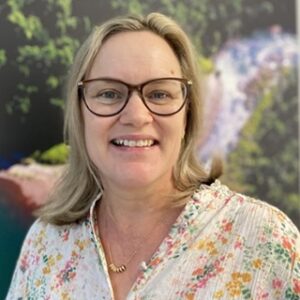
Louise joined Wet Tropics Waterways as Executive Officer in 2025.
Louise Hateley is an environmental scientist with over 20 years of experience in natural resource management, water quality, and catchment modelling across government, research, and community sectors. She has held senior scientific and project coordination roles with the Department of Natural Resources, Mines and Energy and Terrain NRM, leading projects focused on GBR catchment health, waterway management, and sustainable land use. With a record of published research, stakeholder engagement, and project delivery, Louise combines scientific expertise with practical leadership to drive initiatives that protect the Wet Tropics and support community collaboration.
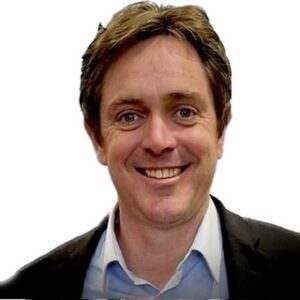
Simon has over 30 years’ experience advocating for waterways across academia, government and the private sector. He started out in marine botany with a fascination for seagrass, mangroves and macroalgae, and has gone on to lead major environmental initiatives both in Australia and overseas. He has established report cards in eight countries.

Richard has been the Science Technical Officer for Wet Tropics Waterways since 2016. His role involves producing the annual results for the waterway health assessment of the wet tropics region using data from a wide range of sources, to present as scores and grades, as well as developing new indicators to address knowledge and monitoring gaps. He works in collaboration with technical staff at other regional report cards.
Richard has a background in freshwater ecology research projects and environmental assessments with CSIRO, University of Queensland, Queensland Government and as a consultant. For a long time he’s been interested in freshwater aquaculture and continues this interest through farming freshwater crayfish, alongside other farming activities.